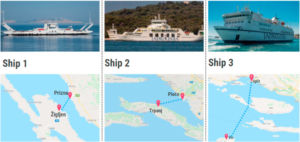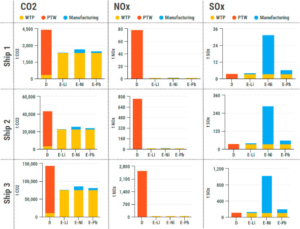Life-cycle assessment and life-cycle cost assessment of power batteries for all-electric vessels for short-sea navigation


Author links open overlay panelMajaPerčićaLovroFrkovićb
TomislavPukšecaBorisĆosićabOi LunLicNikolaVladimira
https://doi.org/10.1016/j.energy.2022.123895Get rights and content
Highlights
Electrification of the ship represents a viable decarbonization measure.
State-of-the-art of selected battery technologies for marine applications.
LCA and LCCA are performed for ro-ro ships operating in Croatian short-sea shipping.
Li-ion battery is the most prominent battery for the electrification of a ship.
Abstract
Environmental regulations are gradually striving to decarbonize short-sea navigation fostering the replacement of the conventional power systems with alternative ones. The electrification of ships has been proposed in the literature as a pathway to zero-emission shipping. Among various alternatives, batteries could ensure full conformity with the tightening emission restrictions. However, appropriate batteries for short-sea navigation need to be investigated, since each battery technology has its own environmental impacts and characteristics such as energy density, number of battery cycles, cost, fast charging ability and safety. The aim of this research is to compare the conventional power system with a diesel engine and alternative power system with a selected battery to identify convenient technology for zero-emission shipping according to the environmental and economic criteria. The Life-Cycle Assessment (LCA) and the Life-Cycle Cost Assessment (LCCA) are performed to analyze environmental and economic performance of different powering options. The analysis included ro-ro passenger ships from the Croatian short-sea navigation, highlighting the electrification by a Lithium-ion battery as the most appropriate alternative according to environmental and economic indicators.
More: https://www.sciencedirect.com/science/article/pii/S0360544222007988?dgcid=author#fig1
